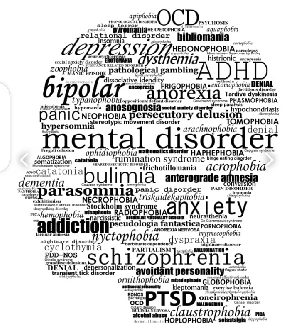The Hospital Director of the Accra Psychiatric Hospital (APH), Dr. Pinaman Appau, has re-echoed the need to channel more investment into mental health infrastructure, human resources development and social interventions to address mental health issues comprehensively.
He maintained that investment in mental health infrastructure and social interventions for the sector are still very low – a situation that is affecting mental health delivery in the country; hence the need to pay more attention to improving the condition of mental health facilities.
According to him, mentally-challenged persons are not economically active to generate enough income to cover their treatment; and most importantly, these people are often neglected by relatives. Hence the need for the National Health Insurance Scheme (NHIS) to be inclusive of mental health treatments.
“Just like in the past, the APH has received some amount of government subventions; however, it is not enough because we have so many patients who need to be fed because they have been abandoned by their families, and so the facility has to cater for them. Also, their medical procedures and treatment are all a burden on the facility, leaving very limited resources for any other projects."
“Mental treatment is comprehensive and requires the services of several specialists. And so mental health is very expensive, and we are hoping that we will get to a stage where patients who are sick with mental conditions will not have to pay out of their pockets. This is because mental health conditions affect the mind and make it difficult for such people to work and earn a living. This is why we are advocating for it to be included in the NHIS to decrease the burden on mental health facilities, individuals and their relatives, as well as government,” he stated.
Specialist Psychiatrist, APH, Dr. Naa Adoley Botchway, made these remarks while speaking on behalf of the Medical Director at a ‘Mental Health Knowledge Forum’ organised by Databank Foundation.
Furthermore, he stated that increasing awareness is very important in dealing with mental health. Additionally, advocacy agencies are doing quite well in this regard – and as a result, more people are now coming in to seek mental health help when they have issues in their homes, leading to a rise in the number of reported mental health issues.
Mental health of children
Touching on the programme theme, ‘Making mental health and well-being for all a global priority’, Dr. Botchway stated that children experience mental health conditions just like adults, and they have the same emotions just like adults; but unfortunately, they are usually not able to express their emotions, which becomes frustrating for the child, parents and everyone around him/her.
She mentioned the rise in conditions including autism spectrum disorders, attention-deficit/hyperactivity disorder (ADHD), periodic seizures in children, and psychosis or psychotic disorders.
This she attributed to an increase in awareness-creation initiatives that have reduced superstitious and spiritual attachments society usually adds to these conditions.
Physiotherapist at Multkids International School, Juliet Asiedua Magyan, stated that the challenge in terms of child mental health issues is a lack of support from society or the environment where they reside – which has affected the children’s ability to communicate well verbally.
A holistic approach that focuses on all factors likely to influence the child is the right way.
Project Coordinator-Basic Needs Africa, Dominic Wunigura, mentioned that the mental health of children is a major worry in the country because it requires critical attention from the time of pregnancy to delivery and to adulthood.
However, the lack of investment in infrastructure and human capital in various fields of health delivery which link to mental health remains a gap.
“Mental health is a low-priority area for successive governments, so investment in this area is low; and as a country, we are losing a lot from not investing and prioritising it. So, once we realise this deficiency and governments start to show commitment to investing in mental health, more professionals will be trained to manage the space,” he said.
Health News of Monday, 21 November 2022
Source: thebftonline.com

















